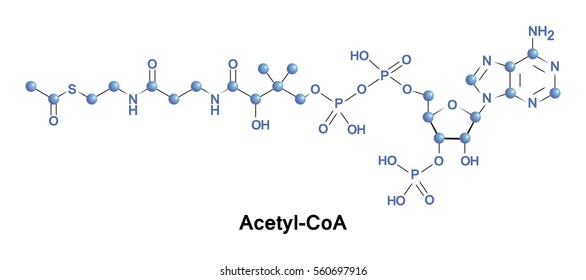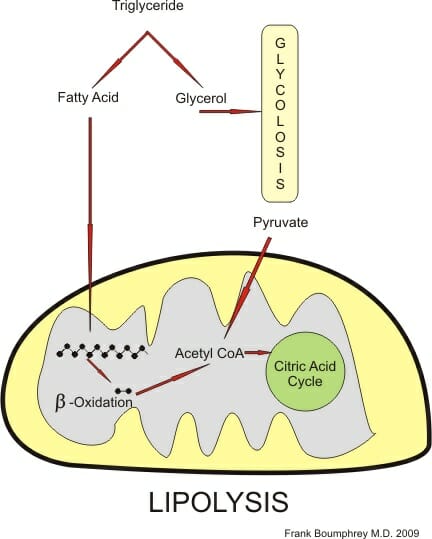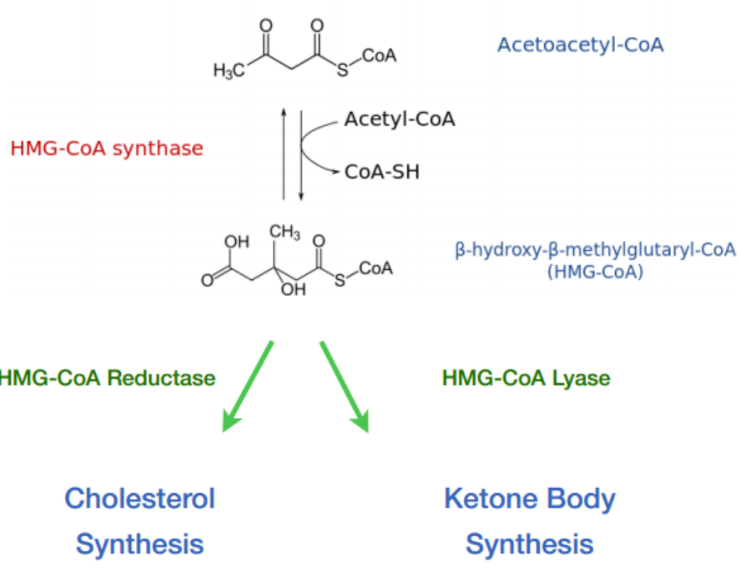Lipids perform different processes in the human body.

Lipids are obtained in the diet, in the synthesis in the liver and they are stored.
Lipids that are obtained in the diet can be either converted into energy, stored as triglycerides or converted in Acetyl CoA.

They are broken down in the intestine:


Ketogenesis: process to produce Ketone bodies of excess of Acetyl CoA in Krebs cycle. Ketone bodies serve as a replacement of glucose when this last is in low levels.
To produce ketone bodies:

Energy:

Lipids are obtained in the diet, in the synthesis in the liver and they are stored.
Lipids that are obtained in the diet can be either converted into energy, stored as triglycerides or converted in Acetyl CoA.

They are broken down in the intestine:
- Pancreatic lipases: enzyme that breaks down lipids after they pass the bile salts. This enzyme breaks down the triglyceride into monoglycerides.
- The monoglycerides can go to be rearranged as triglycerides but move to form Chylomicrons.
Lipolysis: process to obtain energy from fat.
- Hydrolysis separates triglycerides into glycerol and fatty acids. Takes place in cytoplasm.
- Fatty acids are oxidized into Acetyl CoA, later used in Krebs cycle to produce ATP.
- Glycerol enters to glycolysis process.

Ketogenesis: process to produce Ketone bodies of excess of Acetyl CoA in Krebs cycle. Ketone bodies serve as a replacement of glucose when this last is in low levels.
To produce ketone bodies:
- Fatty acids undergo oxidation to form Acetyl CoA.
- Acetoacetyl is formed with 2 molecules of Acetyl CoA.
- 3-hydroxy-3-methylglutaryl-CoA (HMG-CoA) is synthetized catalyzed by HMG-CoA
- Ketone bodies are synthetized by different processes.
- There can be formed Acetone, Acetoacetate and 2-Hydroxybutyric acid.

Energy:
- Fats give a highest amount of energy yield than carbohydrates and proteins.
- Have a larger number of reduced carbons that can be oxidized.
- Hydrophobic nature decreases water content and compact molecules together.
- However, lipids are slower to transport (only can transport in chylomicrons) and slower to metabolize in the body. Carbohydrates provide a faster source of energy.
Bibliography:
Comentarios
Publicar un comentario